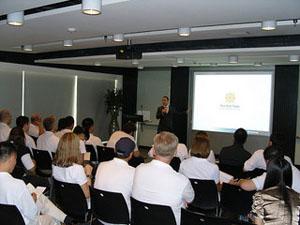 Training is the backbone of preparation to perform the assigned duties in any position you hold. I cannot think of a single job in the world that does not require some kind of training to at least improve performance of the task.
Training is the backbone of preparation to perform the assigned duties in any position you hold. I cannot think of a single job in the world that does not require some kind of training to at least improve performance of the task.
The question then becomes, “What kind of training do I need for this job?” Throughout the years, I have attended and provided many different types of training, and every instance was different. Some training seemed lackluster and really did not provide much benefit for the time spent, while other training sessions were the winning ticket.
What does this have to do with reliability engineering?
Reliability engineers have to deal with a lot of different failure causes, including the human-related kind. Many times the human-related cause of the failure is the result of a lack of training or improper training. Too often we just say that the technicians or operators need more training.
I believe this is the same problem we are facing in other areas of our society. Just throwing money or, in this case, “training” does not necessarily solve the problem. It really comes down to finding the right tool for the job.
Sometimes reliability engineers do not have anything to do with training other than when it deals with “reliability.” In many cases, they do not need to be involved unless there is a problem with human-related issues. “Operator error” or other human-related causes are often overlooked or deflated until they become this huge looming cloud that can’t be avoided.
As a reliability engineer, I think it is a good idea to have a place where you can note different cases of human-related issues and what the core deficiencies are most likely to be. From this information, the training can be adjusted to meet the needs of the company.
Some ways of using the information for training decisions include:
- General or specific
- Informal or formal
- On the job, classroom or computer-based
All of the training types are not equal, and just picking something because it is related to that area does not mean success. If there is no training that is related to the specific issues, then some investigation should be performed to identify proper training.
In cases where there is already training provided, there should be a review of the training to verify it is the best and most effective training, and if not, what are the other possibilities?
Reliability engineers have direct input to trades, tools and parts requirements for the maintenance that must be performed. Why not have reliability engineers give direct input into the training that affects all of these areas?




